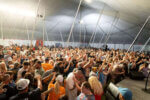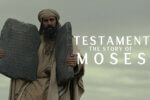Cults have always been vigorously denounced by Bible-believing Christians ever since the earliest days of the Christian church. Even in the apostle Paul’s day, some local churches were being swayed by powerful personalities who distorted true doctrine to pursue their own personal agendas and advancement. In our own era, the mass suicide in 1978 by more than 900 followers of the Rev. Jim Jones, leader of the People’s Temple cult in Guyana, ensured that cults would hold a place of special revulsion in the public mind.
Cults have almost always contained the element of a single, all-powerful leader with near-hypnotic control over his followers, manipulation of the wills of those followers, and religious beliefs ranging from unorthodox to delusional. Christians should not have any problem recognizing these characteristics as those of a real cult.
But now a new danger for Christians has emerged in several parts of the world. This is the tendency of governments that don’t like religion in any form to use the word “cult” against Protestant Christian groups. From China to Poland to France to other countries, demagogic or arrogantly secular regimes have preyed on popular fears of the wickedness of cults to try to stamp out evangelical Christian witness.
The Chinese government’s obsession with cults began after the sudden appearance in 1999 outside the Communist Party headquarters in Beijing of 10,000 followers of the Falun Gong meditation sect, an outgrowth of the qigong meditation and psychic-power tradition. When stringent arrests, beatings, even murder, failed to prevent Falun Gong protesters from demonstrating against the government, the authorities rammed through a draconian new police statute. All cults were to be suppressed and hunted down, and it was up to the Public Security Bureau (PSB), China’s national police force, to define what constituted a “cult.”
That organization seems to have done so with a vengeance. In secret PSB documents smuggled out of China recently, one group was labeled a “cult” because its members prayed for healing and were involved in deliverance ministry. Even worse, the leader of an orthodox evangelical group, the Church of South China, was sentenced to death for leadership of his “cult” (the sentence was later suspended).
Of course, there are genuinely dangerous cults in China. But two things make this new development disturbing.
First, Communist Party officials decided last December in Beijing to intensify efforts to register and control house churches. Second, most of China’s fastest growing house church groups have grown as they have precisely because of the “signs and wonders” apparent in their evangelism.
Sadly, the Chinese government seems to have drawn inspiration for its tough anti-cult measures from none other than Western Europe.
In France (whose state leaders once slaughtered Protestant Huguenots), the country’s Le Monde newspaper featured a lurid article last May declaring that “sects” (including Christian charismatic groups) were “a Trojan horse of the U.S. in Europe.”
Last June, the French parliament passed an anti-sect law declaring “the abuse of weakness or dependence” to be illegal. Any group could be determined to be “abusing weakness” merely by preaching against sin, for example.
Last year in Poland, where Roman Catholicism has always reigned, anti-Protestant bigotry declared Campus Crusade for Christ a “cult” and denounced the Jesus film as “not true to” the gospel.
In Britain, Canada and the United States, it has proven harder to attack “cults” this way. But determined secularists have worked to label as “hate” offenses any Christian declarations that some forms of behavior are sinful (adultery and homosexual sexual acts, for example) and to outlaw any criticism by Christians of other religions. In the United States, criticism by Christians of Islam has been almost censored out of the public discourse by politically correct editors and producers.
Vigilance, it has been said, is the eternal price of liberty. For Christians it must be accompanied by prayer, discernment and the courage to know when to stand firm.






Leave a Comment
You must be logged in to post a comment.